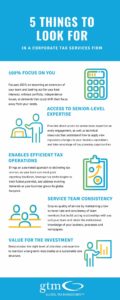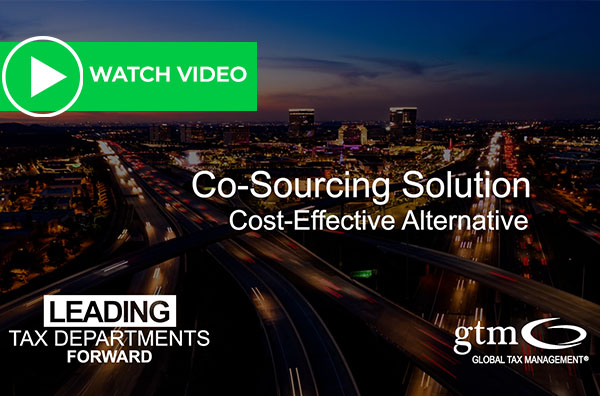The tax and accounting professions have long been plagued with issues that contribute to a tight job market. These issues include heavy workloads, high turnover rates, and the seasonality of demand, among others.
As the corporate tax world continues to evolve, the tax skills that a tax professional needs to succeed are rapidly expanding. The good news is that professionals beginning their careers in tax have more ways than ever to take charge of their professional development as tax departments reinforce their talent teams and build talent from within.
Build Your Tax Technical Skills
Keep Current on Tax Updates
When companies experience real change – whether through new products, divestitures, mergers and acquisitions, or by way of legislation at the state, federal, and international levels – tax departments are expected to adjust practically overnight. Subscribing to daily tax updates from the Tax Foundation, the Internal Revenue Service (IRS,) Thomson Reuters, Bloomberg, CCH® AnswerConnect and others will help you stay up to speed on upcoming changes to corporate tax so you can prepare ahead of time and successfully implement those changes when needed. Be sure to continually engage in dialogue about your readings with your tax team and seek out online and live training on key tax topics.
Hone Your Research and Writing Skills
Business writing is a unique skill; focus on the issue at hand, supporting facts, and the conclusion that impacts your tax department and organization. The sooner you can embrace this framework, the sooner you will be recognized as a top performer on your tax team. Your organization’s compliance with tax law and reporting requirements depends on your understanding of the structure of your organization, and how tax laws govern it. Learn to identify gaps in your knowledge, determine paths to closing those gaps, and develop a style of business writing that communicates your knowledge to leadership in a single page, backed by your research.
Invest in Continual Learning
Graduation from a college or university is just the beginning. As you build your career, you will find that learning never stops. Find out what your organization offers in terms of learning opportunities and reimbursement to determine how to continue your formal tax education over the long term. Those programs or designations can include obtaining your Certified Public Accountant (CPA) designation, a Master of Science in Taxation (MST), a Master’s in Business Administration (MBA) and other tax certificate programs.
Build Your Technology Acumen
Develop proficiency with as many tax technology platforms as possible, such as Thomson Reuters’ ONESOURCE® tax products, Alteryx, Corptax, Workiva, Sage, Excel, and others. Whether it’s as a basic user, power user, or tax technology champion, there is a need for technology in every tax role. If you have a penchant for it, ask to do more of it.
Develop Tax Accounting Skills and Knowledge
Build a solid understanding of how to account for taxes in the financial statements, as well as an understanding of the necessary collaboration between the Tax Department and Financial Reporting, Accounting, and Investor Relations. This is necessary for you to effectively contribute to forward-facing communication with shareholders.
Build Your Business Acumen
Understand your Role Within the Tax Department
Be aware of how the department works within the organization, including which tax functions your organization requires, so you know your part in it and can help your department leadership and the overall organization succeed. This will be necessary as you create relationships with other departments such as the Office of Chief Counsel, Accounting, Finance, Investor Relations, Payroll, and others.It is also beneficial to secure a role within the business development and/or due diligence team within your organization, as this will provide you with a top-down perspective and opportunities for growth.
Network, Network, Network
Networking is essential for every professional. Expand your relationships by joining a Young Professionals Network, college alumni group, industry forums, your state’s society of CPAs, your local chapter of the Tax Executives Institute (TEI,) and other forums. If you have clients, learn which professional organizations your clients are involved with, and join those as well. You can also build business relationships by joining groups where the business community gathers, such as local Chambers of Commerce. Be sure to rehearse your organization’s value proposition ahead of networking events so you can effectively build relationships based on your expertise.
Define Your Professional Goals and Find a Mentor
Whether you already have a five-year plan in mind or are working a year or two out, make sure that you define your goals and write them down. Then, make sure that you choose the right mentor to help you develop the tax skills that you need to accomplish your goals. Your organization may have a formal mentorship program; if it doesn’t, ask your leadership team to match you with an appropriate person.
Become an Effective Communicator
Increasingly, tax professionals need to be able to explain technical tax topics, calculations, and outcomes to professionals with limited knowledge of tax. Internally, this could include communications with leadership of different departments; externally, this often means communication with clients, tax authorities, potential M&A partners, and other vested parties. Work with your head of tax to develop communication style that effectively addresses the needs of different stakeholders through the written word, visually and verbally, that illustrates complex tax rules and outcomes in laymen’s terms.
Enhance Your Presentation Skills
Are you proficient with presentation tools like Microsoft PowerPoint, Prezi, Google Slides, and others? If not, now is the time to learn. Part of effective communication depends on clarity of delivery using slides and other visual elements to support your message. Build your presentation skills internally in a safe environment and expand as you build your technical competence and experience to present externally.



